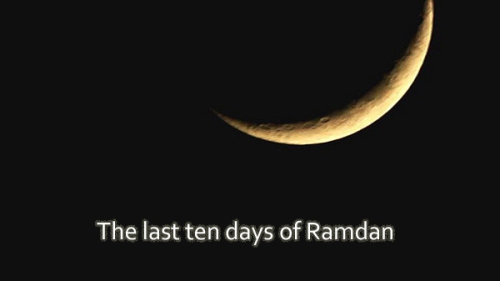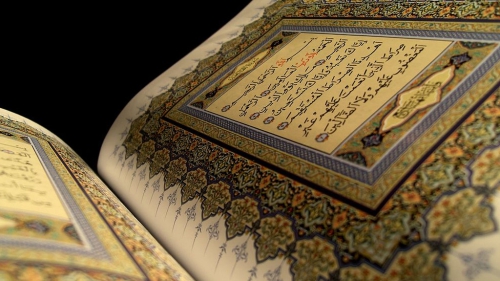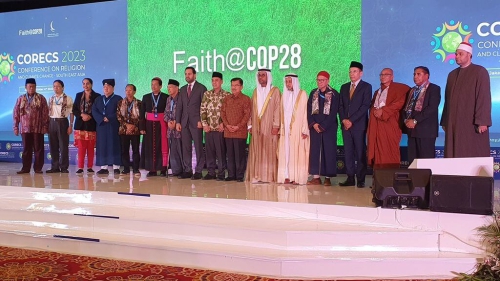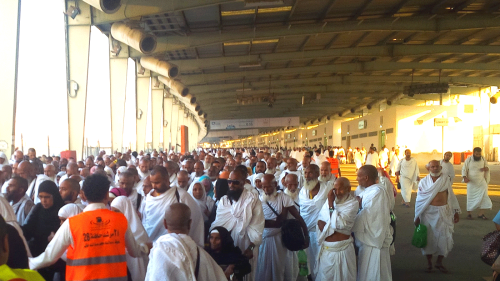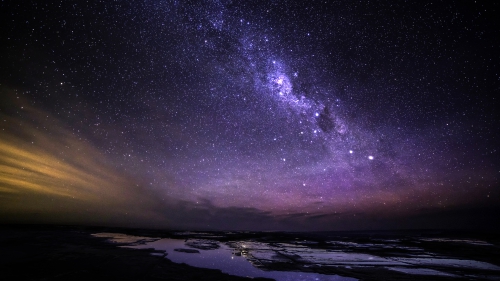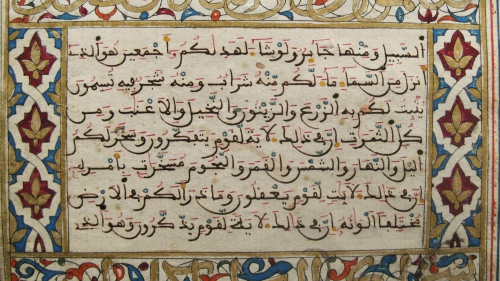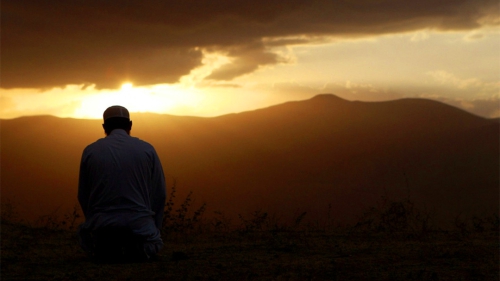The Earth as a "Mosque"
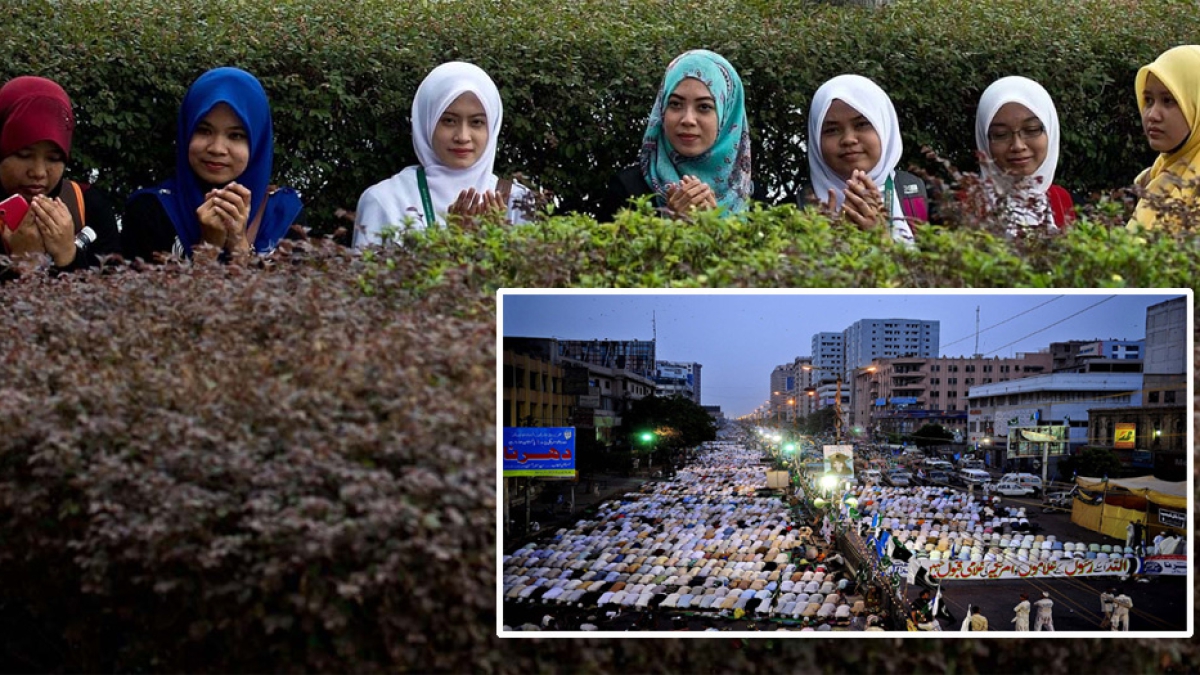
The Prophet (pbuh) has said that the whole earth was created as clean and pure (tahur), and as a place of worship, or a mosque (masjid), to him and his followers. Consequently, he used to offer his prayers wherever they were due, and he would pray even in sheepfolds. The Prophet (pbuh) was once asked about praying in places where the camels lie down. He replied: "Do not offer prayers in places where the camels lie down. These are the places of Satan." He was asked about praying in the sheepfolds. He replied: "You may offer prayers in such places; these are the places of blessing." That the earth has been made clean and a mosque to Prophet Muhammad (pbuh) and his followers, such is one of several favors which from among all the prophets have been bestowed only upon the seal of prophets, Muhammad (pbuh).
With the exception of a few places, such as the places where camels lie down, graveyards and impure places, the whole earth Islam sees as a mosque. Muslims thus can pray virtually anywhere wherever the times of their prayers overtake them. The small exceptions mentioned above are due to the inherent pure state of earth being altered by certain occurrences and actions related to man or Satan. Otherwise, the earth - in principle - is entirely pure and clean, having been created but to worship its Creator and to be of service to man.
Not only that Muslims can pray everywhere on the earth, but also they can use some of its elements for purification purposes against the biggest of impurities, not counting water, of course. For example, tayammum, or the dry ablution, can be performed using sand or dust in place of ablution (wudu') or ghusl (ritual washing of the whole body) if no clean water is readily available. Also, solid, dry and uprooting stones can be used for cleaning the private parts after urinating or defecating, although water is the best and most effective agent. This is so - perhaps - because man's body is created from the earth, as revealed by Allah the Creator. His very self and the earth are not strangers to each other. Man's body comes from the earth, lives on, and with, it, and at the end, it returns to the earth. Every person returns to the earth from which he has been made.
The tenet that can be derived from all this is that the whole earth is pure and a mosque, unless otherwise stated by the Islamic Shari'ah. In the same vein, and for the sake of sheer comparison, there is another similar tenet in Islamic jurisprudence (fiqh) according to which all things in life are originally deemed permissible as long as there is no Shari'ah text that prohibits them. If the Islamic Shari'ah is silent on a thing, that thing remains in its inherent state, i.e., permissible.
Moreover, Allah explicitly says in the Qur'an that the earth and everything thereon ceaselessly in unison worship Allah, in ways suitable for them, which, however, are inaccessible to man and his limited intelligence and cognitive strategies. For example, Allah says: "Do you not see that to Allah bow down in worship all things that are in the heavens and on earth: the sun, the moon, the stars, the hills, the trees, the animals, and a great number among mankind; and many there are against whom chastisement has become necessary; and whomsoever Allah abases, there is none who can make him honorable; surely Allah does what He pleases." (al-Hajj, 22:18)
"The seven heavens declare His glory and the earth (too), and those who are in them; and there is not a single thing but glorifies Him with His praise, but you do not understand their glorification; surely He is Forbearing, Forgiving." (al-Isra', 17:44)
"Whatever is in the heavens and whatever is in the earth declares the glory of Allah; and He is the Mighty, the Wise." (Saff, 61:1)
In that case, the whole earth is a place of worship, i.e., a mosque, where every being - except for some humans and jinn -- endlessly glorifies and prostrates in submission to its Creator and Master, Allah. Man, upon coming to the earth to serve his fixed tenure of vicegerency, is firstly through revelation made acquainted with this overwhelming reality, and is then invited and guided to support via his own means and ways, and to join, so to speak, this terrestrial congregation of the animate and inanimate worshippers. Man spends his appointed earthly term as no more than a servant himself who closely and peacefully interacts with the rest of Allah's "servants", responsibly taking from them and their realms for his own benefit, and amply giving in return from his realm for their own benefit.
Man exists in order to worship Allah and to submit in his life undertakings to Him, on the one hand, and to be of benefit to other life realities around him, on the other. Whatever he procures in the process for his self signifies a means to sustain him and his mission. Amassing material wealth for selfish purposes is alien, and thus abhorrent, to this worldview and to those who subscribe to it. Muslim believers endorse and always tend to enrich the sanctity of the earth and its status as a place of worship. Building their own mosques throughout the earth's vastness is the best evidence of it. Furthermore, the rest of the components of their built environment in no less remarkable fashion work as an evidence too. The lives of Muslim believers are their deliberate forms of worship, so their built environment which frames and contains such lives is equivalent to a place of worship (mosque or masjid), so to speak, as well. It stands to reason that believers' houses, places of learning, places of work, recreational places, etc., are, in truth, all places of worship, i.e., mosques or masjids. Islamic cities, towns and villages could also be perceived as "mosques", multifaceted in nature but unified in meaning and purpose.
For that very reason, no sooner is a Muslim born, i.e., has arrived on the earthly scene, than he is welcomed to the community of this global earthly mosque by a recitation of adhan (call for a prayer) in his right ear and iqamah (announcing the commencement of a prayer) in his left ear. This way, every believer's automatic membership to the chorus of the earthly mosque is being hailed, and the expectations for his imminent performances clearly set. Both the adhan and iqamah for a Muslim baby herald the beginning of its worshipping Allah, which is set to intensify as the baby grows. They will also serve as a defensive shield against various potential pitfalls, impediments and ailments, so that when a baby is grown up, its performances as a servant of Allah, and as an active member of a global web of creation, can be optimized. This way, a true believer always remains an asset to the community and, by an extension, to the whole of the earth; he never becomes a liability.
Besides, when a Muslim believer dies, the Funerary prayer (Janazah) is performed for him. Such an act denotes the end of one's personal noble era and a mission. The Janazah signifies a farewell gathering for a righteous person whose righteous actions and contributions are thus fondly appreciated and will be missed, and who at the same time is prayed for and is wished a success and attainment of Allah's pleasure in the next stage(s) of his journey, i.e., in the Hereafter. There is a genuine possibility that the adhan and iqamah, which indicate a call for and the beginning of a prayer, and which are pronounced in a Muslim baby's ears, are actually meant for the Janazah which as a prayer has neither adhan nor iqamah. In this manner, every Muslim is constantly reminded of how short his tenure on earth in reality is. So short and precarious it is that a person can abruptly depart anytime, anywhere and under any circumstances from it. On coming to the earth, both the adhan and iqamah of a person's farewell prayer, the Janazah, has already been pronounced and the basic preparations for his eventual and predestined departure from this life could soon slowly get under way. Indeed, this tenet will spur a believing person to waste no time in activating and living his vicegerency mission and dream, integrating his self into the global community of worshippers: humans and the rest of animate and inanimate beings. He will strive to be as pragmatic, active and productive a member as possible. He will not be inactive, sterile, unproductive and a person with unrealistic and foolish dreams and ambitions. He will perceive life as too short and too consequential to be wasted on vain and phony alternatives.
As a result, the departure of a believing person from this world is marked not only by people, especially believers, but also by the rest of the members of the earthly community and its global mosque. Evil persons, quite the opposite, are not grieved over. With regard to this, the Prophet (pbuh) has said that when a person who rejects obedience to Allah passes away, human beings, land, animals and trees get a moment of respite from him and his wicked actions. Based on this we can reason that when a dutiful servant of Allah passes away, the same creatures feel disheartened knowing that they have just lost a member and his pervasive benevolence.
The Prophet (pbuh) has also said that for every person there are two doors in the heavens: a door from which his sustenance comes out and a door through which his deeds and words enter. When a (good and obedient) servant of Allah dies, these two doors grieve for him and weep. However, in case of a bad person or a person who rejects obedience to Allah, neither the heavens nor the earth sheds a tear over him when he dies, as no good deeds or words were coming from him. As such, no worthy traces or effects could he possibly leave behind on the earth, and no good deeds were going through his personal gate in the heavens.
The Prophet (pbuh), furthermore, has said that the heavens weep because of a person to whom Allah gave a healthy body, an ability and ample means to enjoy eating and drinking, as well as a comfortable life, but he behaves unjustly towards people. The Prophet (pbuh) described such a person as violent, cruel and wicked.
And finally, the Prophet (pbuh) has said that when people observe a religious standard, or a restriction (hadd), such is dearer to the inhabitants of the earth than that rain is sent forty consecutive mornings upon them.
While erecting mosques for themselves, in order to encourage and facilitate a wide spectrum of their sanctified earthly commitments, Muslim believers know that what they do is just a mirror image of what the fundamental nature of the earth is really like. What they do, moreover, connotes just an act of total compliance with the spiritual laws and paradigms that govern the whole kingdom of terrestrial existence. The reality and mission of people's mosques symbolize the reality and mission of the global earthly mosque. Muslim believers' vibrant lives of comprehensive worship that center round the mosque phenomenon symbolize the equally vibrant lives of worship realized by the rest of the earth's life forms. People's mosques are an extension of the domains of the earthly mosque. Muslim believers' pious lives are an extension of the domains of the pious lives of the rest of the earthly creatures with which believing men and women peacefully interact at different levels of their presence. Indeed, a believer is a microcosm of the earth. What is more, he is a microcosm of the whole universe and the whole existence.
*****
Dr. Spahic Omer, a Bosnian currently residing in Malaysia, is an Associate Professor at the Kulliyyah of Architecture and Environmental Design, International Islamic University Malaysia. He studied in Bosnia, Egypt and Malaysia. His research interests cover Islamic history, culture and civilization, as well as the history and philosophy of the Islamic built environment. He can be reached at spahico yahoo.com; his blog is at www.medinanet.org.
Topics: Nature And Environment, Worship (Ibadah)
Views: 19171
Related Suggestions










